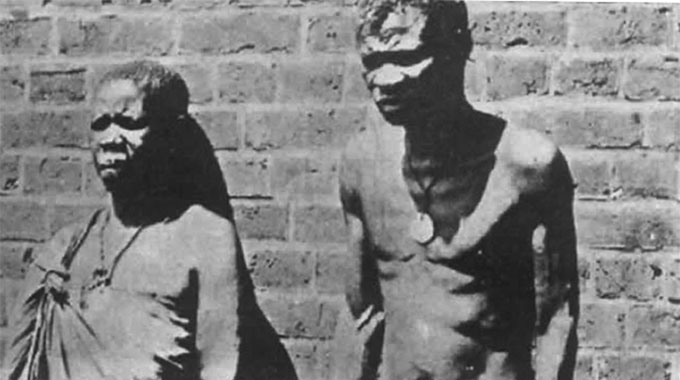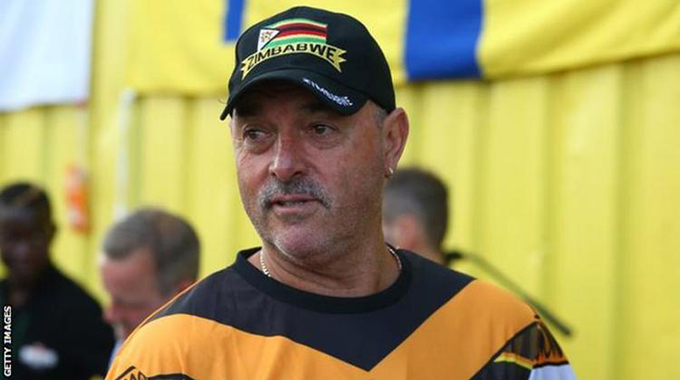This land, our land is a revered land

Ranga Mataire
Writing Black
We need to put certain individuals right in their place. If we fail to call some of these people to order, we risk having our children permanently and psychologically maimed by distorted perspectives of who we are as a people and as a nation.
This land, our land that we call Zimbabwe is a revered land. This does not need anyone to be a Muslim, Hindu, Christian or an African culture proponent to understand.
As a nation, we have deeply rooted ties that mark us as a certain kind of people, with particular ways of thinking, of doing things, of relating to each other, of governing ourselves and of dealing with nature and reality in general.
Anyone who does not understand or appreciate the fact that the foundational birth of this country lies deep in the spiritual realm of our ancestors who in their individual or collective effort inspired generations and galvanised us to face periodical existential challenges must have his or her head examined.
Each country has its own foundational heroes and heroines. These heroes, either female or male, are revered because of their selfless contribution to the sustenance and the well-being of us as a people.
Anyone who tries to vandalise the significance of such heroic, inspirational cultural and historical figures is exhibiting signs of not just being a lost soul, but a thoroughly alienated individual whose attachment to this land is superficial.
We have an individual like Nelson Chamisa, the leader of the MDC-Alliance who has a warped understanding of Christianity, which he is an adherent to. In his own reasoning, having the national bird (Hungwe) is idolatry worshipping just as erecting a statue of Mbuya Nehanda.
Christianity was founded upon the birth, death and resurrection of Jesus Christ, the son of Mary. Jesus is therefore both a historical and religious inspirational figure and its common to see statues of Jesus (mainly white) in churches and some public places all over the world.
Our belief in Jesus Christ does not in any way make us abandon our biological fathers, mothers, ancestors and the broader cosmos that connects us with departed souls that once inhabited the same space as ours and are our direct lineage.
It is unwise for anyone contemplating to rule this country to be so contemptuous of the Njelele Shrine, Mkwati, Chaminuka, Munhumutapa, Sekuru Kaguvi, Nehanda Nyakasikana, Mapondera, Lobengula, Mzilikazi or Changamire Dombo.
It is unwise and clear evidence of serious colonial indoctrination to pour scorn on these inspirational figures or to go as far as making crude jokes about them.
It only needs basic native intelligence for one to appreciate the fact that Zimbabwe did not become Zimbabwe by accident.
The land between the Limpopo and Zambezi is a revered land. Inyika inoyera ine vene vayo. Being a Christian does not entail desecrating something that defines you as a person and something that bestows an identity on oneself.
The spirit of Nehanda, which manifested in Charwe Nyakasikana is not a mythical figure. She was a human being who once bestrode this land, which we call Zimbabwe today.
Believed to have been born around 1862, Charwe was a major spiritual force that led African resistance to white colonial rule during the late 19th century in what is now Zimbabwe. She was a powerful Shona mhondoro.
Those that murdered Nehanda were aware of the immense influence she had on the indigenous people. She was and remains a powerful symbol of consciousness. It is therefore shocking and unthinkable to have someone who pontificates being a leader of this country demeaning the significance of such a historical foundational figure like Nehanda.
Consciously or subconsciously, anyone who debases Nehanda’s memory becomes a collaborator and sympathiser of those who killed her. How does someone defile the spirit of Nehanda and yet be on the side of the people?
Who is happy to see a people defiling their foundational spirits? The former colonisers are obviously happy to have ready recruits who are willing to perpetuate their legacy of demonising our values and our essence as a people.
Anyone who pontificates or dreams of being the leader of this country must surely be aware that one of the colonial legacies that need to be reversed is a warped belief in Christianity that seeks to undermine African culture by having an education system that demonized and devalued African customs and practices.
Snodia Mugudu, Tasura Muguti and Nicholas Mutami make it clear in their seminal research titled “Deconstructing colonial legacy through the naming process in independent Zimbabwe” that erecting statues and renaming places is part of re-affirming our nationhood.
Erecting Nehanda’s statue is part of immortalizing her memory. It is part of the naming process. A name is an important form of identity of a particular place and it tells a story.
It describes the character and attributes of a person, a clan or a nation. The Second Republic should therefore be applauded for erecting the statue of Nehanda. This was long overdue given the impact Nehanda had in the struggle for our independence.
The erecting of Nehanda’s statue demonstrates our continuous journey for unwinding the colonial subjugation and replaces a colonial heritage that is meaningless to the majority of black people.
Psychologically, erecting a statue or naming a place creates a certain mindset in people. We are not a defeated people and erecting the statue of Nehanda gives a sense to black people that we are a people with a valiant history and we are prepared to chart our own destiny.
Chamisa must ask himself why the West, which he seems to revere so much has this religious propensity to immortalize its own foundational historical figures, even some who have committed heinous crimes in Africa.
People who think like Chamisa must realise that being a Christianity is an accident of history. If we were not colonized by the British who had white missionaries as forerunners of imperial conquest, the majority of us would not be Christians.










Comments